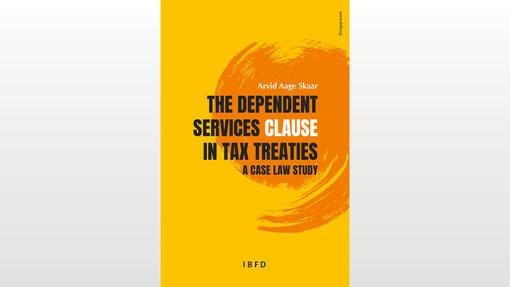New Book Analyses Global Court Practice on Taxing Cross-Border Employment Income
The invaluable new book, The Dependent Services Clause in Tax Treaties by Arvid Aage Skaar, offers a comprehensive analysis of court practice around the world regarding the taxation of cross-border employment income. This critical resource will be of value to tax policy makers, practitioners, academics, and students.

“The issue of which country has the right to tax employees’ cross-border earnings, such as salaries and similar remuneration for work, is of increasing importance as the mobility in the international labour market has developed.” says Arvid Aage Skaar. “My book aims to provide a dive into court decisions from 24 countries, offering more clarity on the solutions to these complex issues.”
Skaar analyses over 280 court cases covering the taxation of income from salaries, benefits, pensions, and various employment scenarios (severance, sickness, stock options, etc.) for transportation workers, government workers, frontier workers, hired-out employees, and entertainers.
In addition to the central theme of dependent personal services, the book explores case law touching on other pertinent tax treaty issues, including:
- Treaty interpretation in good faith under the Vienna Convention on the Law of Treaties
- The status of the OECD Commentary as a legal source
- The limits of the tax treaty mutual agreement clause
- Static vs dynamic interpretation of tax treaties
- Subject-to-tax provisions
- The tax treaty renvoi clause
- The other income clause of tax treaties
- Exit tax on certain benefits
The Dependent Services Clause in Tax Treaties stands out as a monograph which addresses these subjects based on relevant case law on a global scale. “The practical application of these tax treaty rules can vary greatly depending on the jurisdiction,” explains Skaar. “By studying case law from around the world, this book offers a possibility to learn more about the commonly accepted interpretation of the OECD model treaties up until the OECD 2017 model treaty.”
To learn more about The Dependent Services Clause in Tax Treaties and to order your copy, please visit the webshop